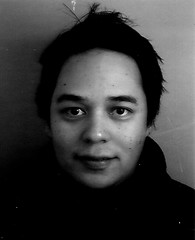We-Make-Open-Source-Not-Money
The Take Away Festival in the Node London context once more showed up, how closely software development, media and arts are connected to each other.
For many people, at the first glance, there may not seem to be an intermediate connection between those industries - particularly not between software development and arts.
Software has most of the time been a product, that generates money - only just in recent times, when open-source has become mainstream, software had become more of something, that creates cultural value rather than monetary profits.
Nobody can deny, that more and more software intrudes our daily lives. Even the fact, that you can read this text here on your screen call for an arbitrary number of machines to do specific operations.
Software is a set of instructions readable by machines, filled up with ideas and written by humans. As machines and automated processes gradually become more ubiquitous in our surroundings, the need for human-machine interfaces becomes very evident.
The beauty of software development is, that *everything* that is thinkable is also doable. It is all a question of time (and money). Artists in general are visionary masterminds using their creativity in a way, that surprises the audience. So every artist operating in the field of media that wants to push his/her creativity to the limits sooner or later gets involved into ideas that require software development. Some of them even become pure software developers.
Art is always a form of communication, and true communication requires the unlimited and free flow of information. The information exchange between humans and machines however is anything but transparent. In contrary, the process called "compiling" is an almost irreversible process that creates very cryptic machine code (binary code) out of a human readable set of instructions (source code). And just as the Coca Cola Company is keeping their recipe secret, so does Microsoft their source code. Would they not do this, the ideas would become just as public as nowadays everybody knows, how to make butter out of cream.
Art is also always somehow idealistic. Sometimes even quixotic. Artists make a point, send a message, change the world. No matter if it's by adding grandiose music to a concert hall, paint a nice picture of a sunflower or build a glorious cathedral. "Artificial" comes from "art" (or vice versa) and is always human made - and with the purpose to change the world to the better.
The community of open source developers believes in the idea, that human-machine communication should be free. Free not only as in "free beer" but, and even more important, as in "free speech". Simply available for everyone (to contribute). Detached from materialistic ideas.
The way artists usually make money is by selling their pieces. It is important, that these pieces come in limited editions or are attached to license fees (e.g. musicians, writers, fine art photographers). Otherwise there would be no way of making any monetary profit of the hard work (which is undoubtedly necessary in today's world). Is this why an artist propagating open source software will never make money out of his/her work?
(In this article, "Open Source" mostly refers to "Free Software")


0 Comments:
Post a Comment
<< Home